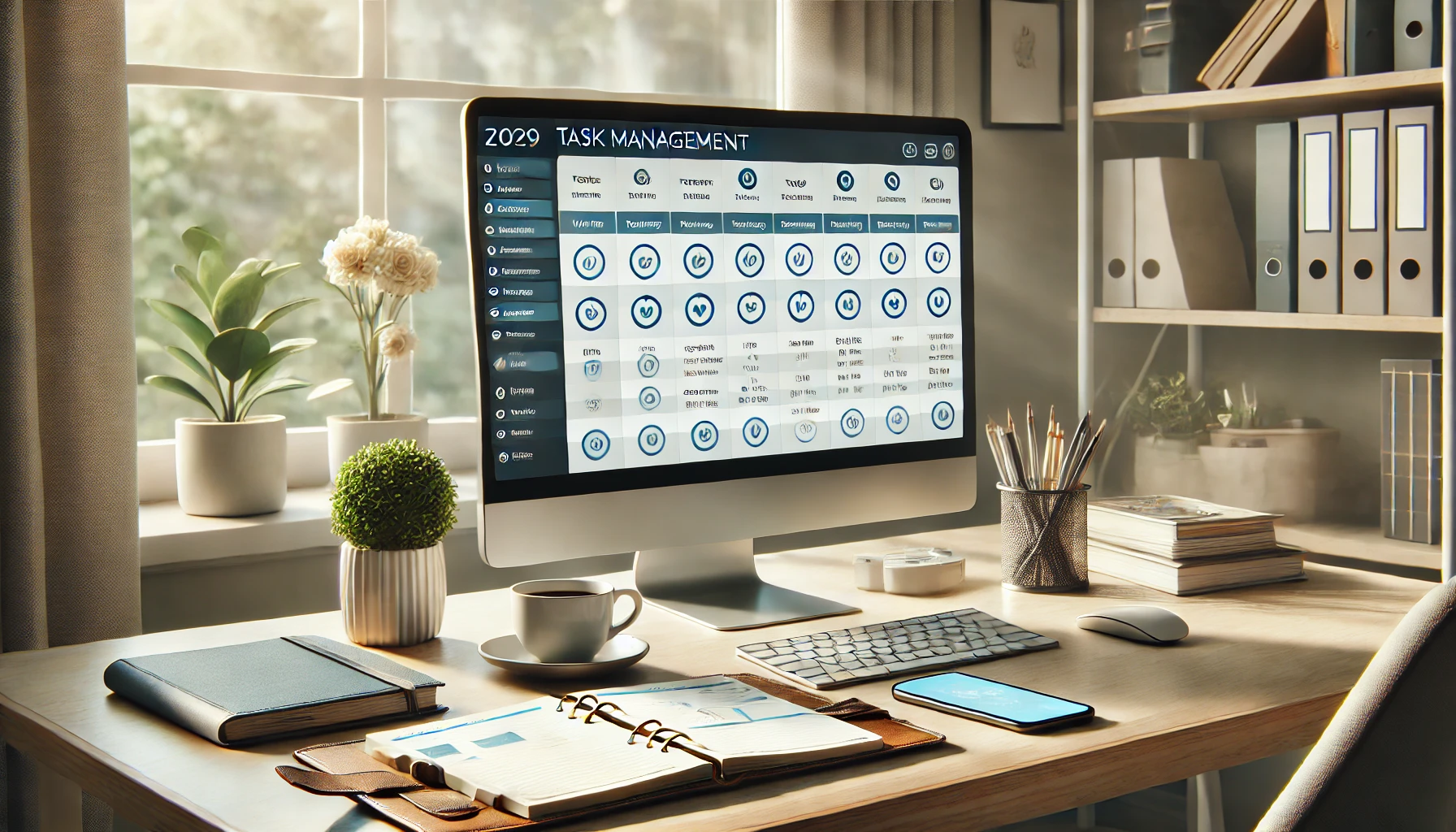Task paralysis can feel overwhelming, leaving you unable to take action on tasks or make decisions. This common challenge, often fueled by feelings of overwhelm, indecision, or perfectionism, can disrupt productivity and lead to frustration. Understanding how to address task paralysis is key to breaking free and regaining control over your to-do list. Whether caused by cognitive overload or a lack of motivation, task paralysis can affect anyone. Fortunately, there are strategies to overcome it and boost your productivity. These practical tips can help you address task paralysis effectively and focus on achieving your goals.
Understand the Root Cause of Task Paralysis
Before tackling task paralysis, it’s essential to understand what’s causing it. Task paralysis often stems from feeling overwhelmed by the number of tasks, fear of failure, or difficulty deciding where to start. For some, it can also be linked to conditions like attention-deficit/hyperactivity disorder (ADHD) or executive dysfunction.

When you identify the root cause, you can better address it. If cognitive overload is the issue, breaking tasks into smaller steps can help. If perfectionism holds you back, focus on progress over perfection. Using tools like Weekplan to categorize and prioritize your tasks can help reduce feelings of overwhelm and give you a clear starting point.
Break Down Tasks Into Manageable Steps
Large tasks can feel intimidating, making it difficult to start. Breaking tasks into smaller, actionable steps is an effective way to overcome this. A big project might feel overwhelming, but dividing it into smaller goals creates a sense of progress and makes it easier to take that first step. For example, instead of tackling an entire project at once, focus on one section or task at a time. Weekplan’s SMART Goals Feature allows you to set achievable objectives, keeping your progress on track without feeling paralyzed by the big picture.
Prioritize Tasks with a Clear System
When everything feels important, deciding where to start can lead to choice paralysis. Prioritizing tasks based on urgency and importance can help. Use the Eisenhower Matrix, which divides tasks into four categories: urgent and important, important but not urgent, urgent but not important, and neither urgent nor important.

Weekplan offers tools for task prioritization, allowing you to organize your workload effectively. This approach ensures that high-priority tasks receive attention first, reducing stress and increasing productivity.
Take a Brain Dump to Clear Mental Clutter
Task paralysis often comes with mental clutter—too many thoughts, ideas, or tasks swirling in your mind. A brain dump involves writing down everything you need to do, think about, or remember. This process frees up mental space and helps you see your tasks more clearly. Once you’ve listed everything, you can group similar tasks and prioritize them. Weekplan’s planning tools can help organize these tasks into actionable plans, turning your brain dump into a roadmap for success.
Address Perfectionism
Perfectionism is a common contributor to task paralysis. The fear of making mistakes or producing subpar results can stop you from starting altogether. Overcoming this requires a shift in mindset—focus on progress, not perfection. Remind yourself that done is better than perfect.

Using Weekplan’s tools for recurring tasks can help you build a habit of regular progress. By revisiting tasks over time, you can refine and improve without feeling pressured to get everything perfect on the first try.
Schedule Regular Breaks to Refresh Your Mind
Working without breaks can lead to cognitive overload and mental fatigue, worsening task paralysis. Taking regular breaks, such as a 15- to 20-minute break after focused work sessions, can help refresh your mind and maintain energy levels. Consider techniques like the Pomodoro Technique, where you work in focused intervals followed by short breaks. Weekplan’s time-tracking features can help you implement this method, ensuring you stay productive without burning out.
Create a Positive Environment
Your environment plays a significant role in task paralysis. A cluttered or chaotic space can increase feelings of overwhelm, while a clean, organized environment promotes focus. Make sure your workspace is free of distractions and stocked with everything you need to work effectively.

Weekplan’s workspace organization tips provide ideas for creating an environment that supports productivity. A calm and positive space can make a significant difference in overcoming paralysis.
Set Realistic Expectations
Unrealistic expectations can contribute to task paralysis. If you expect to complete a large project in one day, you might feel discouraged and stuck before you even begin. Setting realistic goals helps you feel more accomplished and less overwhelmed. Weekplan’s SMART goals framework encourages setting achievable targets, keeping you motivated and focused. Breaking larger projects into smaller, time-bound goals allows you to track progress and celebrate wins along the way.
Use Tools to Stay Organized
Effective task management tools are essential for combating task paralysis. Tools like Weekplan help you organize, prioritize, and track your tasks, giving you a clear roadmap. By visualizing your workload, you can make better decisions about where to focus your time and energy.

Weekplan’s features, such as task categorization and goal tracking, make it easier to stay on top of your responsibilities. Using these tools ensures you spend less time worrying about what to do next and more time taking action.
Frequently Asked Questions (FAQs) 1. What is task paralysis?
Task paralysis occurs when feelings of overwhelm, indecision, or perfectionism prevent you from starting or completing tasks.
2. How can Weekplan help with task paralysis?
Weekplan offers tools like task prioritization, goal tracking, and time management to help users stay organized and reduce feelings of overwhelm.
3. What are the signs of task paralysis?
Common signs include procrastination, indecision, and an inability to start tasks, often accompanied by feelings of stress or frustration.
4. Why does breaking tasks into smaller steps help?
Smaller steps make tasks feel more manageable, reducing the mental burden and providing a clear starting point.
5. How do regular breaks help with task paralysis?
Breaks reduce cognitive overload and refresh your mind, helping you return to tasks with renewed focus.
6. What tools can I use to prioritize tasks?
Weekplan’s prioritization features, including the Eisenhower Matrix, are excellent for organizing tasks by importance and urgency.
7. How can I manage perfectionism when dealing with task paralysis?
Focus on progress, not perfection, and use tools like Weekplan to revisit and improve tasks over time.
8. Does Weekplan work for neurodiverse individuals?
Yes, Weekplan’s tools are adaptable for individuals with diverse needs, including those managing ADHD or executive dysfunction.
9. Can task paralysis affect mental health?
Yes, task paralysis can increase stress and frustration, making it important to address it proactively.
10. How does creating a positive environment help?
A clean and organized workspace reduces distractions and promotes focus, helping you overcome feelings of being stuck.

More Posts
9 Easy Ways to Increase Your Luck
How you can improve your luck by adopting the habits of effective people
10 Best Project Management Task Software
Searching for software that puts your project management task software needs first? Look no further. Project management isn’t just about charts and deadlines; it’s about turning chaos into order. Whether a full-fledged project...
Benefits of Personal Planner for Productivity & Organizations
In today’s fast-paced world, maintaining productivity and organization has become more important than ever before. Whether you’re a student, a professional, or a stay-at-home parent, balancing multiple responsibilities and tasks can be quite...
Lifetime Goals - How to Define, Plan, and Actually Reach Them
Lifetime goals are the big aims you want to achieve between now and, say, 2050–2080—not just next month’s to-do list. They’re the destinations that give your daily decisions meaning and help you build...